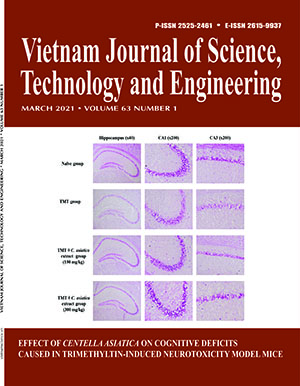Study on the fluoride-releasing ability of dental GIC materials in deionized water and artificial saliva environments
Tóm tắt
Glass ionomer cement (GIC) is a particular type of cement used in dentistry. One of the most critical properties of GIC is the ability to release fluoride, which can prevent recurrent tooth decay. This study simultaneously investigated the release of fluoride, the compressive strength, and the apparent density of three GICs in deionized water (DW) and artificial saliva (AS) environments. GICs with 3 different types of glass powders were used to study. Powder B (the original) was the glass powder based on the SiO2-Al2O3-CaF2-AlPO4-Na3AlF6 system, powder HA5 was powder B supplemented with 5 wt. % hydroxyapatite powder (HA), and powder Si2 was powder B surface-treated with 2 wt. % silane JH-S69. The results of this study showed the amount of fluoride ion (F-) released during 28 days in AS was lower in comparison to the DW environment, and the rate slowed down significantly after 1 d. The F- release rate at 1-d age tended to be high as the compression strength was low. In AS, the powder supplemented with 5 wt.% HA improved the compressive strength and the cumulative amount of F- released by the GIC. After 28 d, the F- release of the GIC materials were able to be recharged in a NaF solution with 1,018 ppm F- concentration for 3 min and further fluoride ions were released in both the DW and AS environments.

